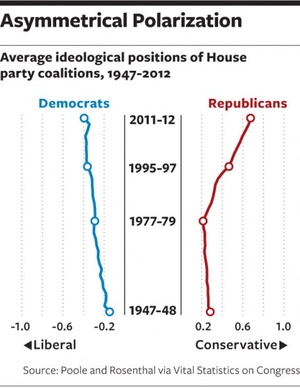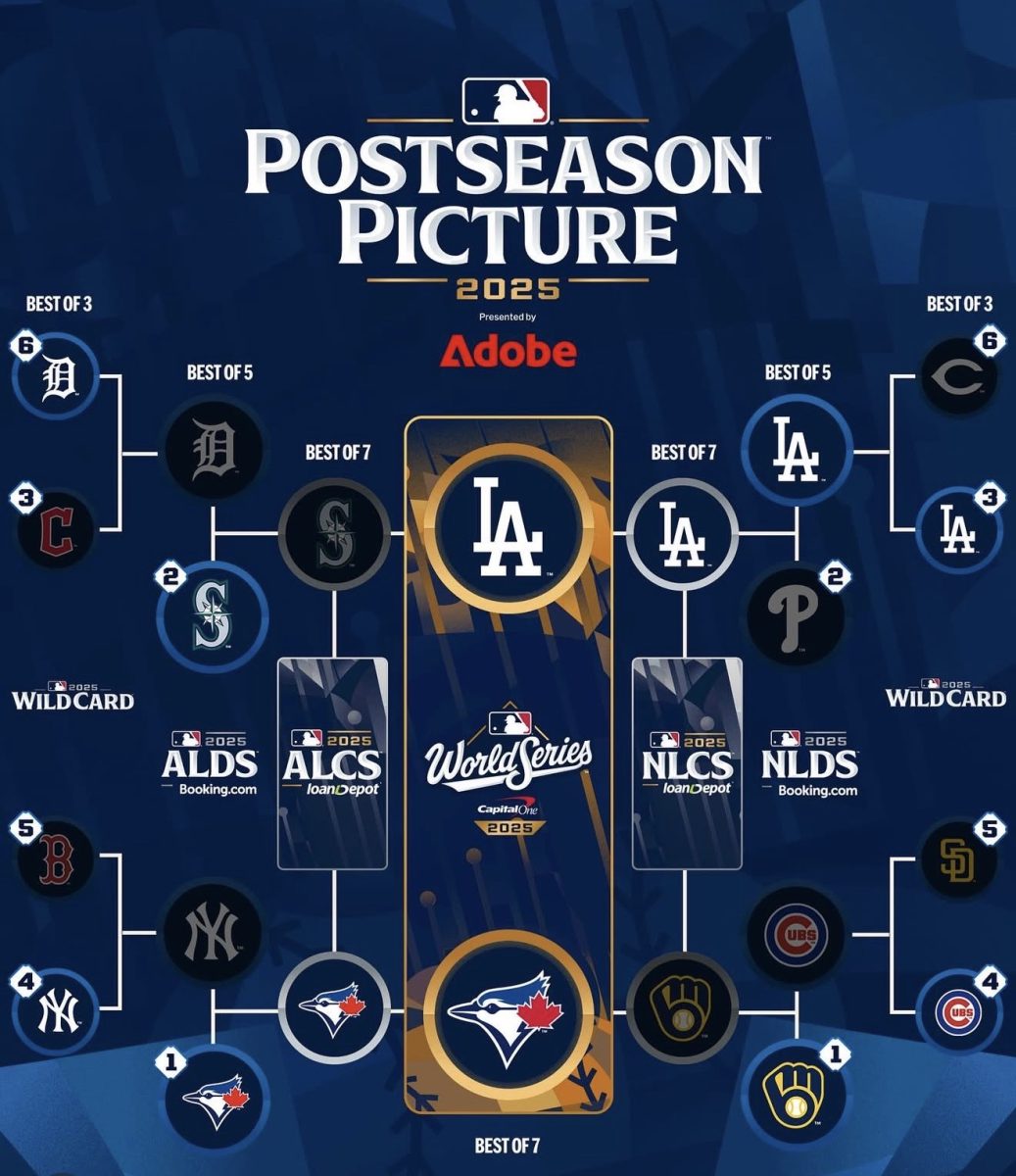The Media and (Asymmetric) Polarization
How Journalists are Largely Misrepresenting the Biggest Problem In Today’s Politics
December 11, 2018
If you’ve been paying attention to the news recently, one thing that you might notice is the frequent mention of the polarization of today’s politics. Political polarization, or the separation of ideals between parties, is mentioned with increasing frequency in the news, whether that be in-between the belligerent remarks of TV News correspondents or inked in the digital printing press.
The idea that the nation is dividing itself over political viewpoints is scary, without a doubt. Though what is perhaps scarier is the misrepresentation of the problem – that the polarization trends that are present in the United States are largely caused by Republicans.
I’m sure that by that statement alone, I have lost many readers. “The Media,” they shall say, “Is meant to be unbiased! This is fake news!” The problem with responses like that one is that the public has become confused as to when the news is biased and when it is not (the public is not alone in this; the government and the media itself seem to be perplexed as well).
For so long, the news has tried to report on every side of the story, equating the problems of one party to another when often, that is not reality (“Polarization is Asymmetric”). This is in an effort to not seem biased in a world where traditional news media is not trusted by the public. So while political polarization retains a heavy presence in political discussions, its asymmetry remains mostly untold.
Asymmetrical polarization, in this case, refers to the kind of polarization where one party (assuming a mostly binary system) pulls away from the other by becoming more extreme in their liberal or conservative viewpoints, while the other mostly remains the same. This is evidenced by the graph on the right, which shows how the Republican party has grown more extreme in their ideologies. Here and now, Republicans are becoming significantly more conservative in their viewpoints (“The GOP’s grass-roots obstructionists”).
Some might wonder, at this point, why it matters whether or not polarization is asymmetrical, or, more specifically, why it matters that the news report on it. According to Columbia Law Review, “For a quarter of a century, Republican officials have been more willing than Democratic officials to play constitutional hardball*—not only or primarily on judicial nominations but across a range of spheres. Democrats have also availed themselves of hardball throughout this period, but not with the same frequency or intensity” (“Asymmetric Constitutional Hardball”). The willingness to go beyond what would normally be acceptable is what distinguishes Republicans from Democrats…and what makes them politically dangerous.
It is for this reason that it is so imperative that journalists break away from their urge to blame both sides for the current polarization crisis. In a letter, Thomas Jefferson wrote, “The basis of our governments being the opinion of the people, the very first object should be to keep that right; and were it left to me to decide whether we should have a government without newspapers, or newspapers without a government, I should not hesitate a moment to prefer the latter. But I should mean that every man should receive those papers & be capable of reading them” (“Extract from Thomas Jefferson to Edward Carrington”).
Ultimately, it is up to the press, as fractured as it may currently be, to hold the government accountable for its actions. The public, in a free democracy, has the right to vote out the extreme and the corrupt, but if they do not have the information necessary to determine who that is, and instead blame the government as a whole (thus increasing distrust between the government and her people), no one is held accountable, and the extreme and the corrupt remain in power.









